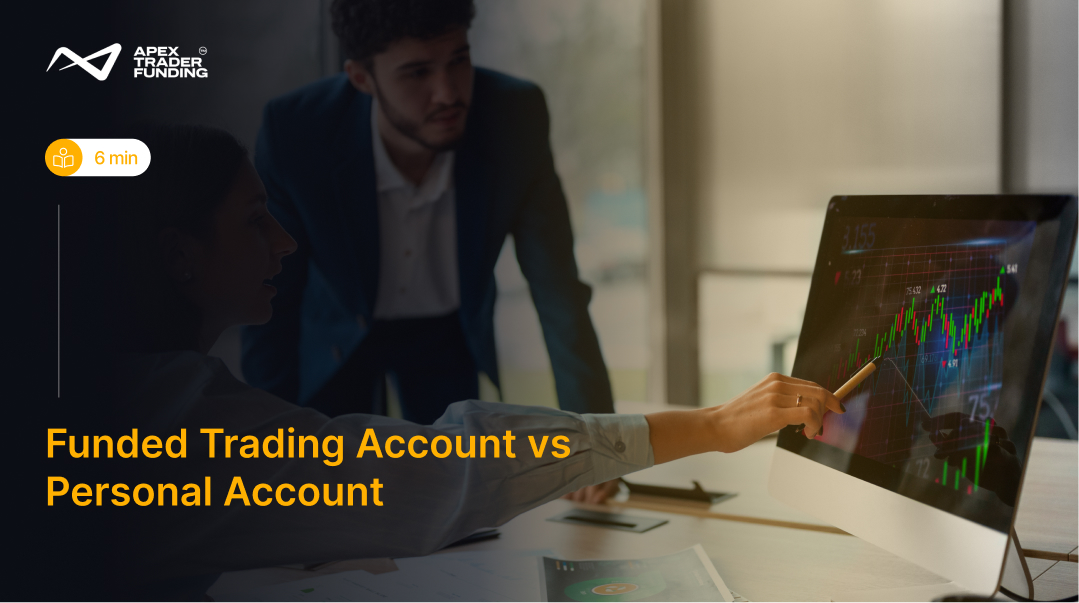
trading-education | 01-09-25
Every trader begins with the same question: should I trade with my own savings or explore opportunities through a funded account? Both options come with unique advantages, limitations, and psychological impacts. Understanding the difference between the two is essential before committing your time, effort, and resources.
What Is a Funded Trading Account?
A funded account represents trading capital entrusted to you by a proprietary firm after meeting its requirements. Traders first prove their ability through an evaluation process, which usually tests profitability, risk management, and consistency. Once they pass, they gain access to the firm’s capital and trade under specific rules.
In this setup:
- The trader keeps a share of profits, often a significant percentage.
- Losses are absorbed by the firm, but breaking rules results in losing the account.
- Evaluation fees or resets are part of the cost of participation.
It’s essentially a performance-based partnership where skill, discipline, and compliance replace personal savings as the foundation.
What Is a Personal Trading Account?
A personal trading account is the most direct route: you use your own money. Opening an account with a broker allows you to deposit funds, access markets, and manage positions however you see fit.
This path offers:
- Complete freedom — you decide risk levels, strategy, and execution.
- Full ownership of profits and losses — nothing is shared, but nothing is protected either.
- Capital dependency — your trading power depends entirely on how much you can deposit.
It’s the traditional model of trading, where both success and risk fall solely on the trader.
Comparing the Two Approaches
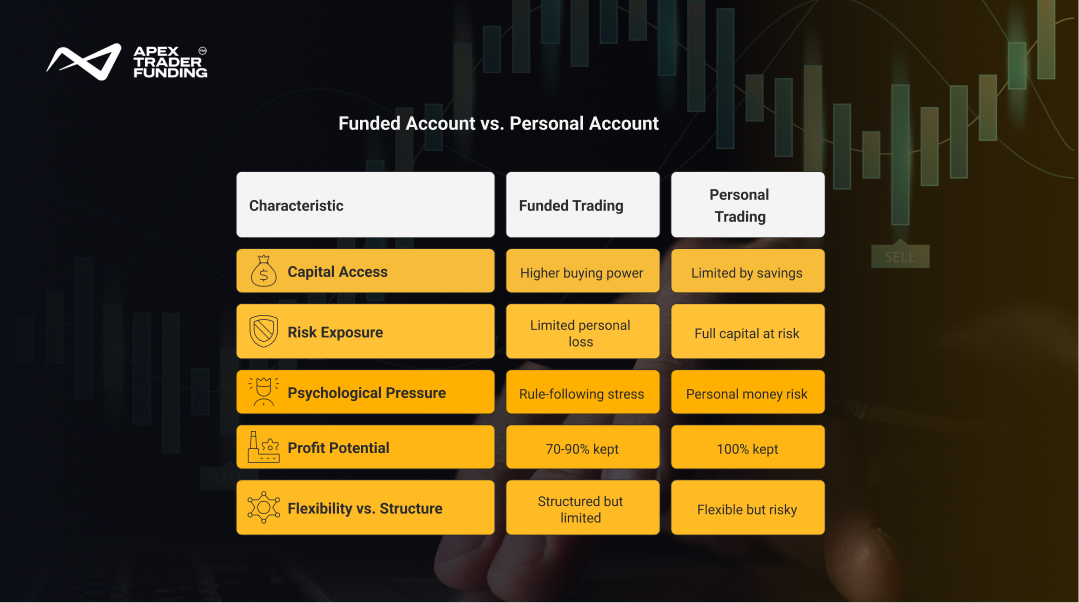
Psychological Differences That Matter
One of the most overlooked aspects when comparing funded accounts and personal accounts is psychology. In a funded account, traders often feel pressure to strictly follow rules, knowing that breaking them means losing access to capital. This can create stress but also encourages discipline and controlled decision-making.
With a personal account, the emotions are different. Using personal money creates psychological strain, where the risk of loss and desire for larger gains can disrupt rational decisions. While this freedom allows experimentation, it also exposes traders to impulsive choices. Being aware of these mental factors helps you select the environment that aligns with your personality and approach to trading.
Which Option Suits You Best?
Deciding between a funded account and a personal account comes down to your trading goals, level of experience, and the resources you have. Traders who have developed reliable strategies but lack significant capital may find a funded account more suitable. It allows them to scale their trading activity without putting their personal savings at direct risk, provided they can work within the firm’s structured rules.
On the other hand, a personal account may appeal more to those who value complete independence and have the financial cushion to withstand potential losses. With no external restrictions, traders can pursue their strategies freely, though this freedom comes with the full weight of personal responsibility for both profits and losses.
Some traders choose not to see this as an either-or decision. Instead, they combine the two approaches, using personal accounts for flexibility and experimentation, while relying on funded accounts as a way to scale responsibly with access to larger capital. This balance allows them to enjoy the strengths of both models while minimizing the weaknesses.
The better account isn’t the one with more capital—it’s the one that matches your trading style and mindset.
Final Thoughts
The decision isn’t about which model is better—it’s about which aligns with your circumstances. A personal trading account gives independence but demands significant capital and emotional resilience. A funded trading account offers scale and reduced personal risk, but within a structured framework you must respect.
Successful traders often see both paths not as rivals, but as complementary tools in their journey. The key lies in discipline, consistency, and choosing the path that strengthens—not weakens—your long-term growth.
Ready to put your skills to the test? Start with a 25K evaluation account or scale up with a 50K account at Apex Trader Funding and trade with real capital today.
FAQs
A funded trading account is capital provided by a proprietary firm after you pass an evaluation, with profits shared between you and the firm. A personal trading account, on the other hand, uses your own money—you keep all profits but also bear all losses.
Yes, funded accounts are generally safe because the firm, not the trader, absorbs financial losses. Your risk is limited to evaluation or reset fees. The real challenge isn’t safety—it’s following the firm’s rules consistently to keep your access to capital.
A 100K funded account can be an excellent option for experienced traders who already have a consistent strategy and want room to scale. The larger balance provides more buying power, flexibility to manage multiple positions, and a cushion against normal market fluctuations. However, it also comes with higher evaluation fees and stricter discipline requirements. For beginners, starting with a smaller account is often wiser to build confidence and consistency at a lower cost. Ultimately, a 100K funded account is “good” if you’re ready to treat it professionally and use the extra capital responsibly.
Related Blogs
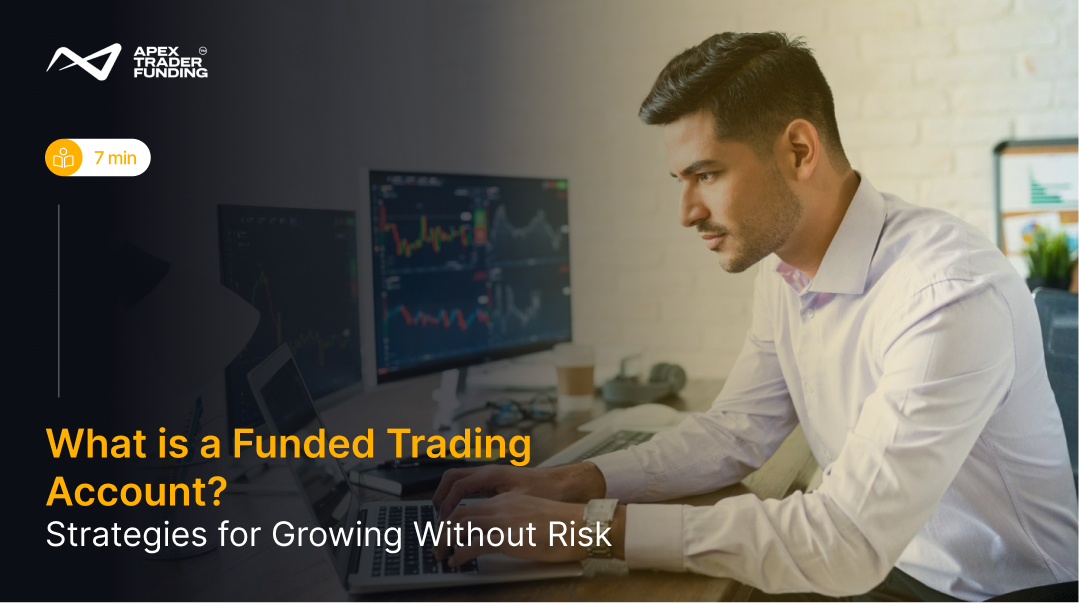
trading-education | 22-08-25
What is a Funded Trading Account? - Detailed Guide
A funded trading account is a financial arrangement where a proprietary trading firm (like Apex) provides you with virtual or...
Read more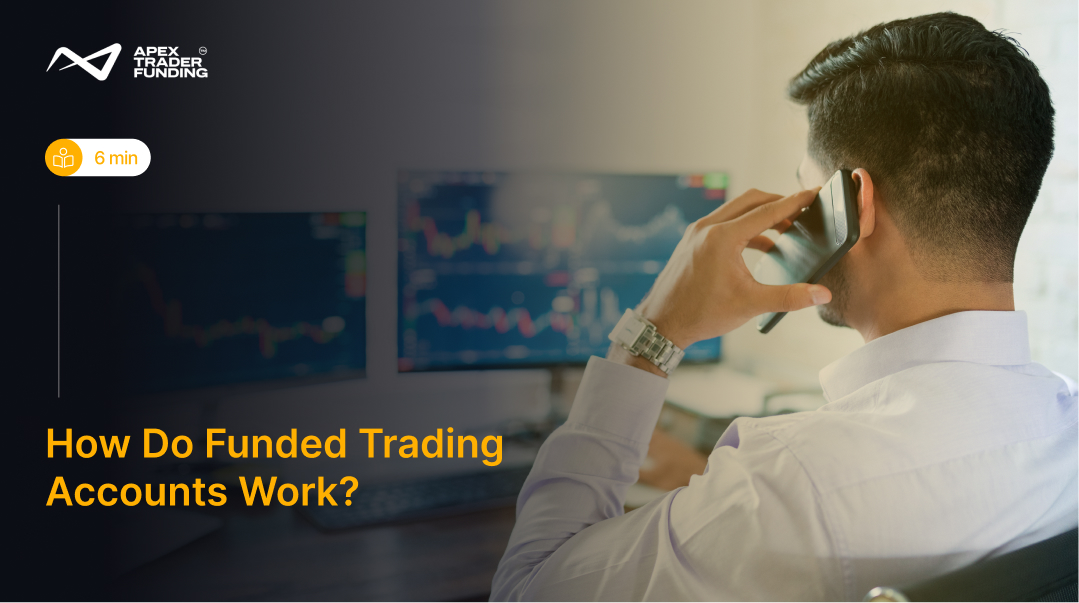
trading-education | 23-08-25
How Do Funded Trading Accounts Work?
A funded trading account works by granting a trader access to a firm's capital after they pass a simulated evaluation....
Read more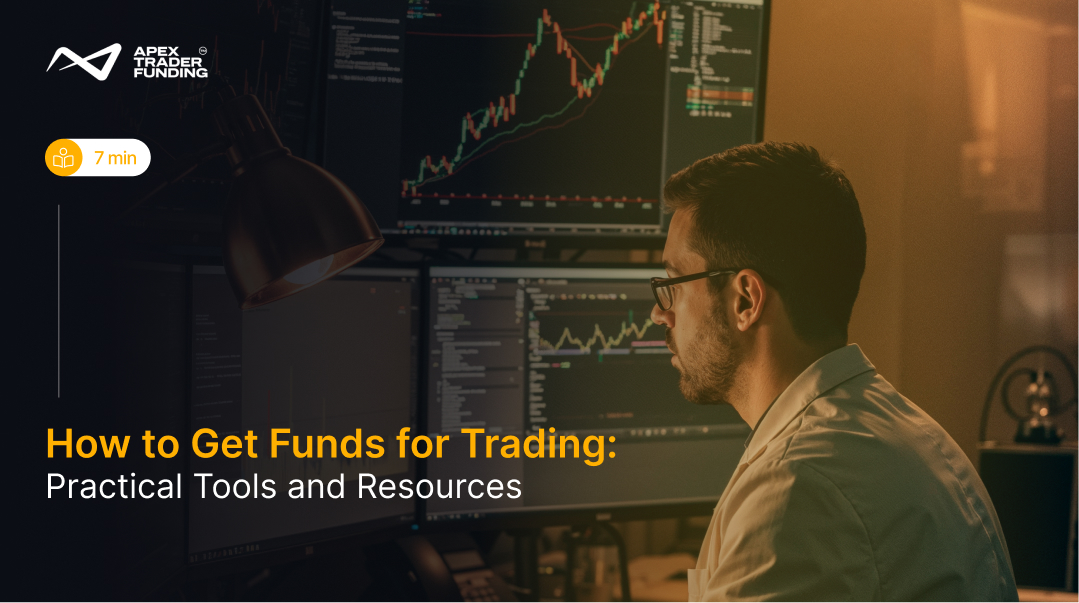
trading-education | 25-08-25
How to Get Funds for Trading? - 6 Practical Ways
Starting a trading journey often requires more than knowledge—it requires capital. Yet many aspiring traders face the same challenge: how...
Read more